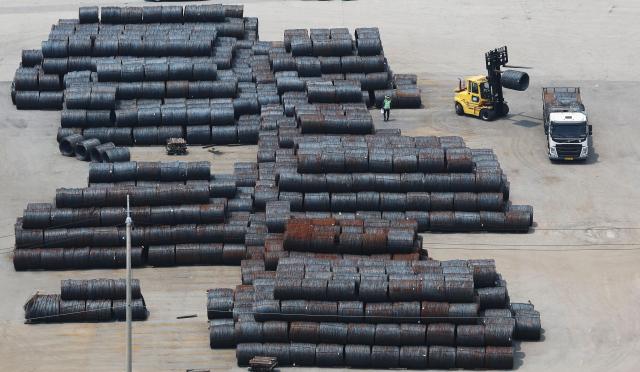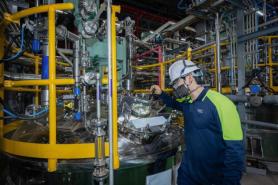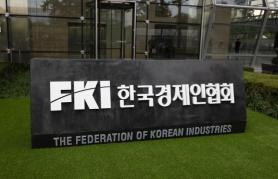
Steel exports from South Korea fell 5.9 percent year-on-year to $15.63 billion in the first half of 2025, according to the Ministry of Trade, Industry and Energy. The downturn accelerated in May and June — dropping 12.4 percent and 8.0 percent respectively — as the full effects of the Trump administration’s 25 percent tariff began to bite.
The blow was compounded in June when the White House doubled the tariff rate on steel and aluminum to 50 percent. Speaking at a U.S. Steel plant outside Pittsburgh on May 31, U.S. President Donald Trump defended the move, saying: “At 25 percent, they can sort of get over that fence. At 50 percent, they can no longer get over the fence.”
The rate hike has reignited fears of a broader trade contraction, especially for export-reliant economies like South Korea. The Korea International Trade Association now forecasts a 7.2 percent decline in steel exports in the second half of the year, while the Federation of Korean Industries projects a 5 percent drop amid tightening global margins.
POSCO Holdings, the country’s largest steel group, is expected to report second-quarter operating profit of 646.8 billion won ($469 million), a 14 percent decline from a year earlier.
While lower raw material prices and a weaker won provided some cost relief, analysts said slumping demand and falling prices in Southeast Asian markets likely weighed on overseas operations.
In response, POSCO has accelerated efforts to streamline its international footprint, including the recent sale of its 1.1 million-ton-capacity Zhangjiagang Pohang Stainless Steel plant in China.
Hyundai Steel, the nation’s second-largest producer, also faces mounting headwinds. Second-quarter revenue is projected to decline 3.2 percent to 5.85 trillion won, with operating profit forecast to fall 15.2 percent to 83.1 billion won.
Despite the grim backdrop, industry watchers point to a few signs of potential relief in the second half. Beijing’s production curbs have begun to lift steel prices, and a pending South Korean government decision on imposing anti-dumping duties against Chinese and Japanese hot-rolled steel could help alleviate some pressure from low-cost imports.
Copyright ⓒ Aju Press All rights reserved.




